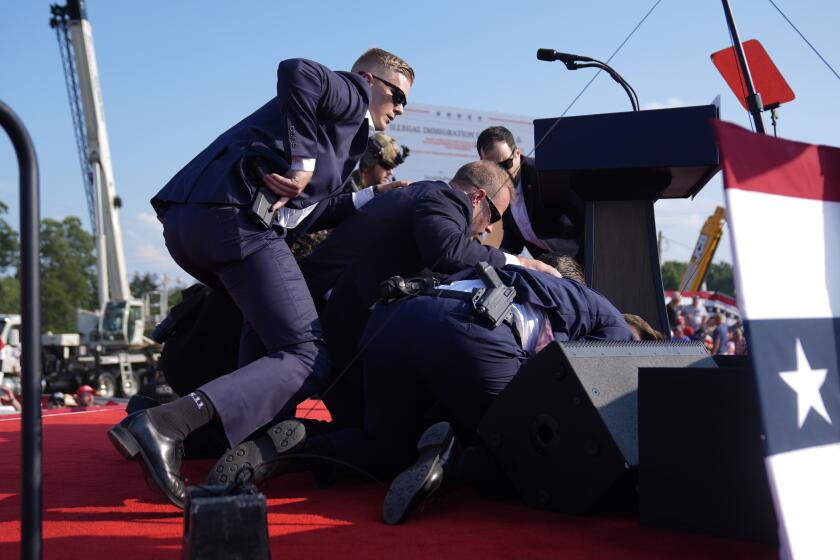Bush Releases Money to Destroy Russian Arms
President Bush has signed two waivers to free up $466 million in frozen funding to help Russia destroy its dangerous and deteriorating Cold War arsenal, White House officials said Tuesday.
In particular, the waivers will release $184 million appropriated by Congress in the last two years to start construction of a Siberian plant to destroy deadly nerve gas and other chemical weapons.
“Russian stockpiles of weapons and materials are the most likely source for terrorist attempts to acquire weapons of mass destruction,” said Sen. Richard G. Lugar (R-Ind.), who was co-author of 1991 legislation with then-Sen. Sam Nunn (D-Ga.) that set up the joint program to destroy Russian nuclear, chemical and biological weapons.
“Destroying these weapons at the source is imperative to our national security.”
But critics in Congress have been imposing stiff conditions on the release of the funds, saying Russia has not spent enough of its own money on the program or fully complied with its arms control and human rights obligations.
As a result, no funds have been released in more than three years. But the waivers Bush signed Friday override those conditions for one year.
Proponents of the Cooperative Threat Reduction program contend that the critics’ concerns are outweighed by the danger that Russia’s poorly guarded weapons of mass destruction -- including 40,000 tons of chemical weapons -- could wind up in terrorists’ hands.
There is particular fear over the 5,400 tons of nerve agents -- VX, sarin and soman -- stored in a cluster of barns in Shchuchye, a Siberian town near the border with Kazakhstan.
Many of Shchuchye’s 2 million chemical artillery shells are small enough to fit in a suitcase and contain enough poison to kill a stadium full of people. In addition, 800 Scud missile warheads at Shchuchye are also loaded with nerve agents.
“The size and lethality of the weapons at Shchuchye are clearly a direct proliferation threat to the American people,” Lugar said.
When Bush took office, he ordered a review of the program, commonly known as Nunn-Lugar. The review concluded that the program is a cost-effective way to reduce the threat posed by the weapons.
Sean McCormack, spokesman for the National Security Council, said Bush remains committed to safeguarding Russia’s weapons of mass destruction.
“These are crucial programs that need to move forward,” he said. “At the same time, we are going to work diligently with the Russians to deal with the problems we discuss in the waivers.”
The first waiver will unfreeze $416 million appropriated for the Nunn-Lugar program in fiscal 2003, including $134 million for construction of the plant at Shchuchye.
The second waiver will release $50 million allocated last year for the plant.
More to Read
Sign up for Essential California
The most important California stories and recommendations in your inbox every morning.
You may occasionally receive promotional content from the Los Angeles Times.










